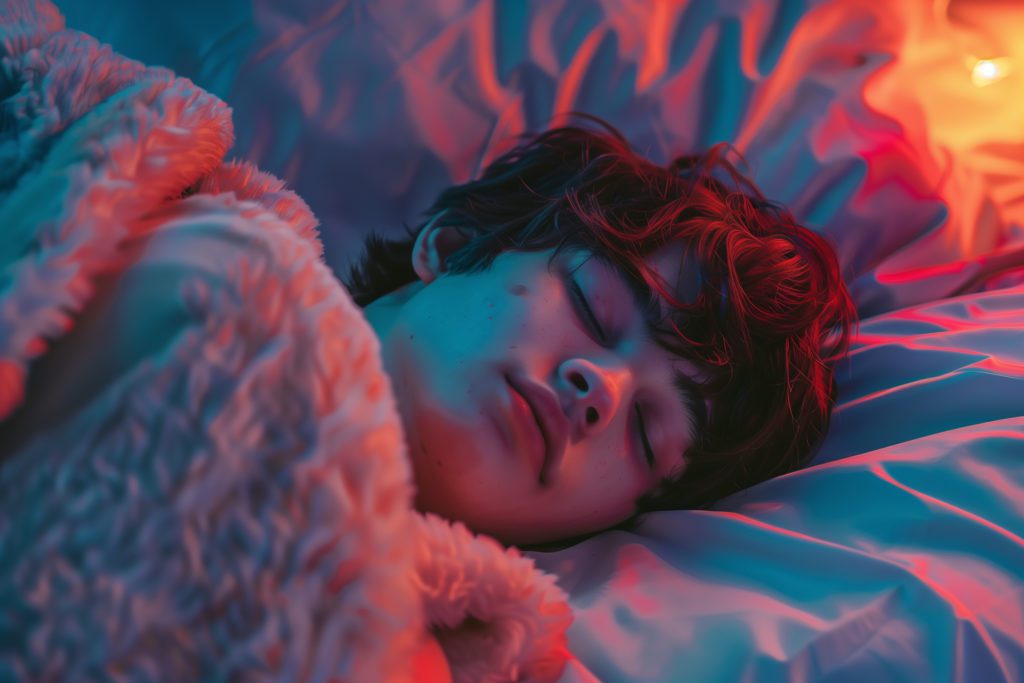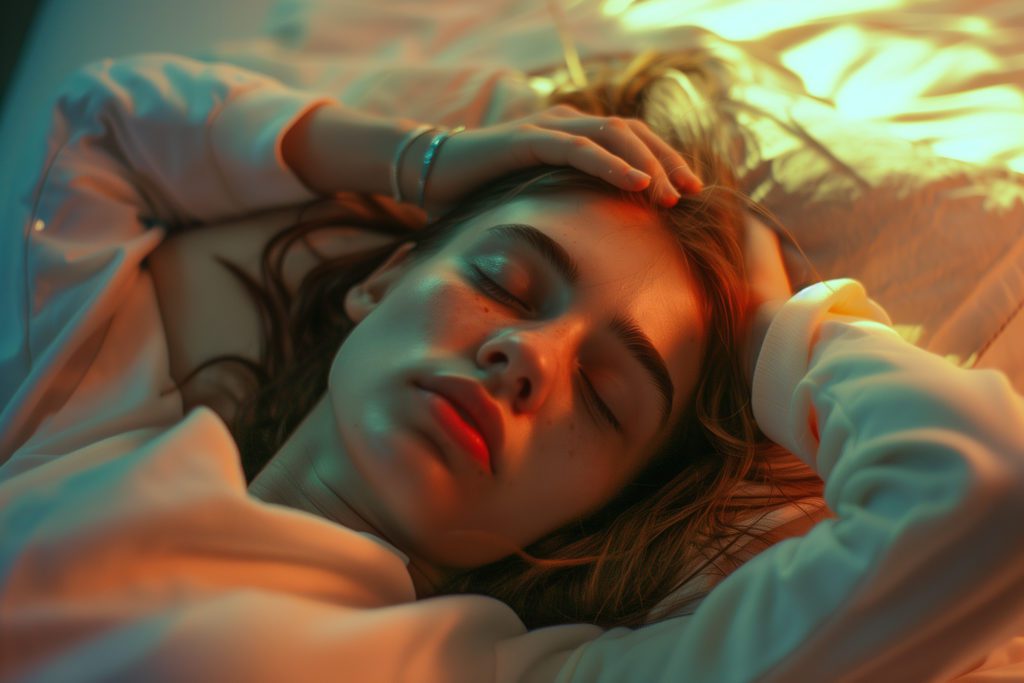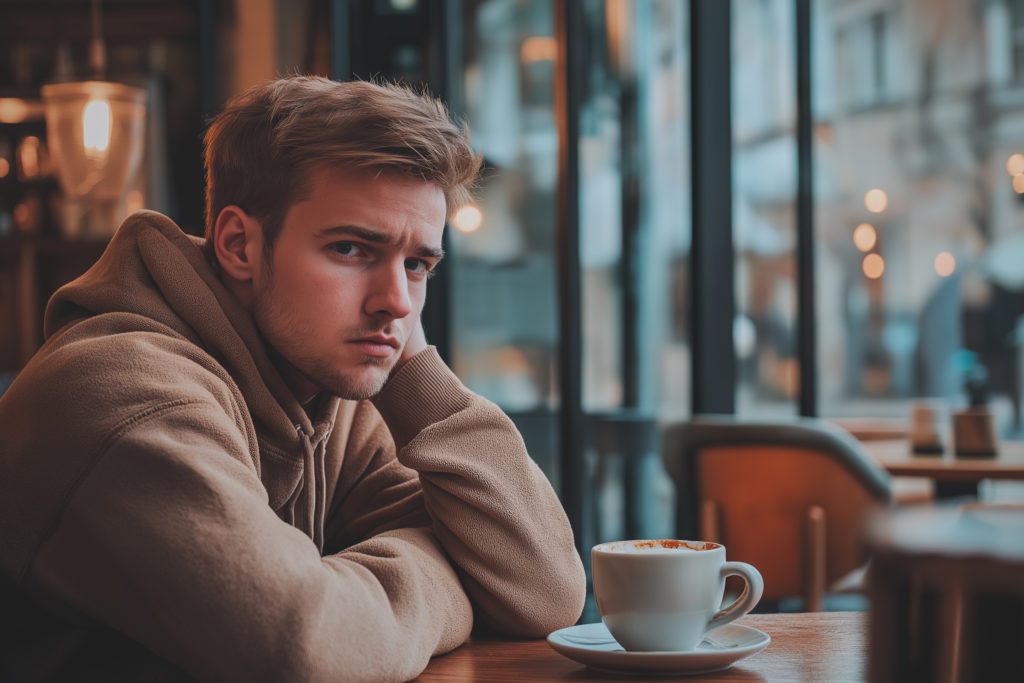
Food and Fatigue: How Your Lunch Choices Impact Afternoon Sleepiness
What you eat for lunch and the afternoon’s natural dip in energy can lead to afternoon sleepiness. Explore the lunch choices that may be making you tired.

If the urge to close your eyes peaks in the hours after you eat lunch, you’re not alone. There are many factors at play that lead to a dip in energy, some related to food, such as the foods you eat and how much you eat, and others, including your circadian rhythm’s natural dip, having nothing to do with your lunch.
To avoid afternoon sleepiness, it can help to fuel yourself with the right foods at lunch, as well as implement some other sleepiness-fighting habits.
Why Am I Tired After Eating Lunch?
If you cannot fight the urge to nap after lunch, it may be time to take a closer look at what you’re fueling up with during your mid-day meal. The following are some factors that may increase your sleepiness in the afternoon:
- What you eat. If your lunch is chock full of carbohydrates and fats, you’re more likely to feel tired than if your lunch were instead protein-packed. Foods high in fat may even affect your nighttime sleep, resulting in more sleepiness during the day.
- Overeating. If you eat a lot of calories in one sitting, you may be more likely to experience post-meal fatigue.
- Eating foods with certain nutrients. In addition to macronutrient content playing a role in your sleepiness after a meal, other nutrients can also contribute. Specifically, research shows that the nutrients tryptophan and melatonin promote sleepiness.
Lunch Choices That Make You Sleepy
The following are some foods to avoid if you want to banish your afternoon slump:
Carbohydrates
Carbohydrate-heavy meals, especially those with a high glycemic index, are more likely to cause sleepiness after a meal.
Since the glycemic index measures how specific carbohydrates raise blood sugar, experts suspect that the reason why carbs cause sleepiness has to do with their influence on blood sugar levels. Your body converts carbs to sugar, causing blood sugar to rise quickly after eating carbs and then crash, leading to sleepiness.
Foods with a high glycemic index include:
- Cereals
- Baked goods
- Sugar
- Potatoes
- White rice
- Watermelon
Fatty Foods
While a high consumption of fatty foods is linked to daytime fatigue, the type of fat also makes a difference. Specifically, saturated fats appear to have the greatest effect on post-meal fatigue.
Foods that fall into this category include:
- Butter
- Baked goods
- Beef
- Cheese
- Ice cream
- Fried foods
- Lard
- Pork
- Whole-fat dairy products
Tryptophan
The culprit behind the Thanksgiving food coma, tryptophan, is an amino acid that the body converts to serotonin and melatonin, which is how it can make you sleepy.
Turkey is the most well-known source of tryptophan, but other sources include:
- Chicken
- Fish
- Egg whites
- Sunflower seeds
- Milk
- Soybeans
- Peanuts
Melatonin
Melatonin is the sleepiness hormone that the body naturally produces as nighttime approaches in preparation for bed. However, melatonin can also be found in some foods, and when consumed, it can increase sleepiness.
Foods with a high amount of melatonin include:
- Corn
- Barley
- Eggs
- Cucumbers
- Oats
- Mushrooms
- Strawberries
- Salmon
- Rice
- Wheat
- Pistachios
More Than Food: Other Factors That Cause Afternoon Sleepiness
While your lunch choices can contribute to the sleepiness you feel in the afternoon, they’re not the only culprit.
Your sleep drive is your desire for sleep, and the longer you’ve been awake, the greater it is. As such, in the afternoon, your sleep drive is higher than it was in the morning, which can be one reason why you feel more tired.
Your circadian rhythm also factors in. Your circadian rhythm is the natural fluctuation in your hormones, temperature, and metabolism that dictates your sleep-wake cycle. It is typically considered in regard to your ability to fall asleep at night, but it is a 24-hour process. The signals that promote wakefulness start to decline in the early afternoon, and this dip can lead to sleepiness after lunch.
As a result of sleep drive and circadian rhythm, it’s common for you to feel sleepy in the afternoon. When you add in certain dietary choices, it may exacerbate this sleepiness.
How to Ease Post-Lunch Sleepiness
If you always feel like you’re waging a losing battle to stay awake in the afternoon, it may be worthwhile trying out these tips to help counteract the sleepiness. While it isn’t entirely avoidable, you may be able to lessen the sleepiness to a level that you can fight.
- Eat well-balanced meals. Given the impact of food on your energy levels, start fighting the afternoon slump by fueling up with the right foods at lunch. Avoid foods high in carbs, fats, tryptophan, and melatonin to keep your blood sugar stable and prevent ensuing sleepiness.
- Get in the sun. If you’re feeling sleepy after lunch, rather than close your eyes, try to get outside in the sun for a few minutes. Our circadian rhythms are impacted by sunlight, with light increasing alertness. Research even shows that getting exposure to bright light after lunch can offer the same benefits as a short nap, but without worrying about waking up in time.
- Prioritize your nighttime sleep. If you’re feeling excessively sleepy during the day, it may be because you’re not getting enough sleep at night. Prioritize your sleep hygiene to help you get higher-quality sleep.
- Take a short nap. If the urge to snooze is too great, consider taking a nap but capping it at 20 minutes. Any longer, and you may wake up even more tired than when you laid down, and then struggle to fall asleep at night.
If these tips do not help your post-lunch sleepiness, consider seeing a medical professional. Sometimes, underlying health conditions such as anemia, diabetes, or thyroid problems can cause daytime sleepiness, or a sleep disorder may impact your quality of sleep at night. A doctor can help you find a diagnosis and then begin treatment.

Written by
Jessica G
Medical writer freelancer who has written hundreds of articles on varying topics. Masters of Engineering degree in Biomedical Engineering.
Download Pillow
Get help
Press & News
Legal
Connect
X (Twitter)
Company
Copyright © Neybox Digital Ltd.



